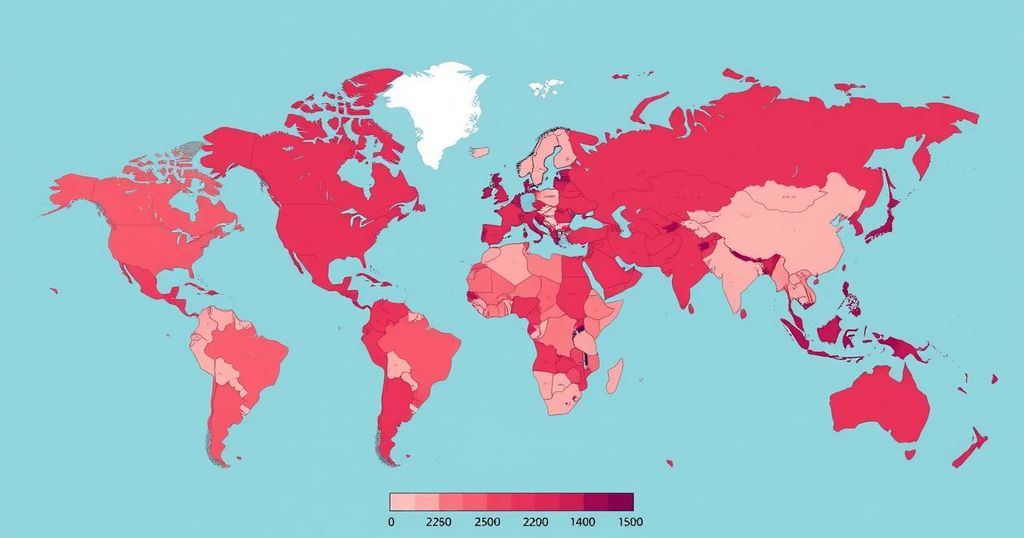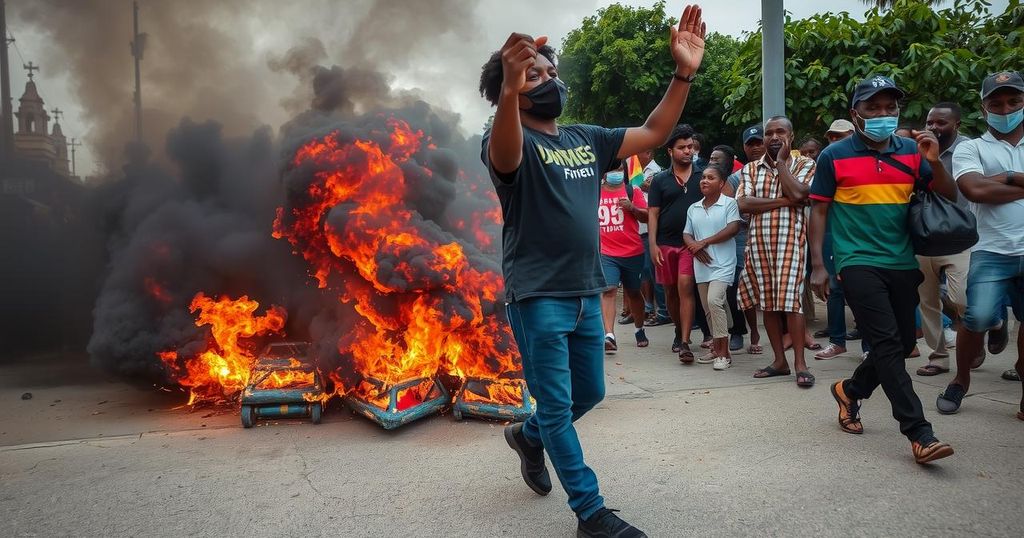Global Democracy in 2024: Election Outcomes and Political Dynamics
The year 2024 witnessed historic electoral participation in over 60 nations, representing nearly half the world’s populace. While this surge reflects engagement with democracy, many voters prioritized immediate economic issues over collective concerns, often swayed by fear and personal interests. Key elections around the globe, including significant shifts in political power in India, South Africa, and the U.S., illustrate the ongoing tensions between populism and established governance. Despite some victories for democratic processes, authoritarian practices remain a concern, particularly in Russia.
In 2024, democracy saw a historic wave as over 60 countries, representing nearly half of the global population, participated in elections. This surge reflected a significant moment of political engagement across diverse nations. However, despite this opportunity for collective progress, many voters appeared to prioritize their immediate needs over broader societal concerns, often driven by fear and economic uncertainty. Key victories at the electoral polls offered a mixed bag of outcomes, revealing underlying tensions and shifting political landscapes in various regions.
In more developed countries, immediate economic issues took precedence over long-term initiatives such as climate change. This focus was particularly evident in the United Kingdom, where the Labour Party, led by Keir Starmer, saw a decisive victory due to widespread public concern about the economy. Similarly, in the United States, President Joe Biden faced backlash despite reducing inflation; his inability to alleviate economic pressures led voters to favor Donald Trump. The inclination toward voting with one’s wallet remained a pervasive trend, resulting in the ousting of several incumbents worldwide.
The year culminated with notable elections and shifts in power dynamics. In India, Prime Minister Narendra Modi’s party, the BJP, suffered losses in support, while in South Africa, the ruling party of Nelson Mandela lost its majority for the first time. Germany’s political landscape was also disrupted, leading to snap elections in early 2025 due to a no-confidence vote against Chancellor Olaf Scholz. In contrast, political stability was noted in Bangladesh, where Sheikh Hasina won a new term but later faced mass protests showing public distrust of leadership.
Highlighting individual elections, Donald Trump’s return to the U.S. presidency stands out as a significant event, characterized by controversial messaging and the ongoing economic crisis. French President Emmanuel Macron’s snap parliamentary elections post-EU elections signal a similar struggle against rising populist forces, although ultimately his ruling party managed to maintain power, albeit precariously. // The power dynamics in these nations illustrate how economic conditions fueled voter sentiments against sitting governments.
Internationally, Vladimir Putin’s overwhelming electoral success in Russia serves as a stark example of the manipulation of democratic processes, with opposition campaigns being actively suppressed. His authoritarian grip contrasts sharply with the participatory democracies developing in other nations. The anticipated interactions between President Trump and President Putin could set the stage for significant geopolitical shifts, particularly with regard to Ukraine—a region currently hindered from exercising its democratic rights due to ongoing conflict.
The 2024 elections marked a pivotal moment in global democratization, with unprecedented voter participation across a multitude of countries. This phenomenon can be seen as both an evolution and a challenge within democratic frameworks worldwide. The complexities of political priorities, driven largely by economic factors, have underscored the tensions between individual interests and collective responsibilities. Moreover, the varying outcomes illustrate the fragile state of democracy, especially in regions facing authoritarian threats and populist backlash. This global electoral landscape necessitates careful analysis to understand both immediate results and long-term implications for governance and international relations.
In summary, the electoral events of 2024 demonstrated a remarkable engagement in democratic processes, yet highlighted persistent challenges related to economic pressure and voter priorities. The mixed outcomes across nations underscore a global trend toward populism and economic self-interest. As countries navigate this complex terrain, the interaction between newly elected leaders and existing international dynamics will play a crucial role in shaping future governance. The resilience of democracy continues to be tested, and the lessons drawn from these elections will resonate in the years to come.
Original Source: www.cnn.com




Post Comment